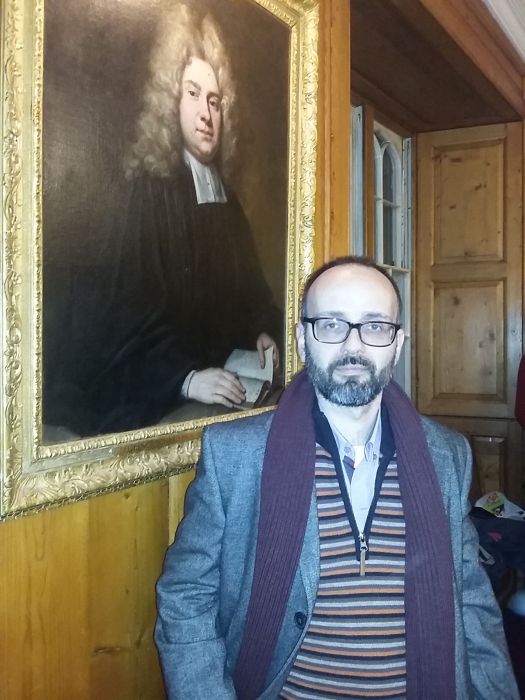Konstantinos Zorbas,男,希臘人,博士,山東大學哲學與社會發展學院講師。
基本介紹
- 畢業院校:劍橋大學
- 學位/學歷:博士
- 專業方向:社會人類學
- 外文名:Konstantinos Zorbas
人物經歷,教育經歷,工作經歷,研究方向,教授課程,學術成果,國際會議,科研項目,所獲獎項,發表著作,
人物經歷
教育經歷
2007 劍橋大學 社會人類學 博士
2001 聖安德魯斯大學 社會人類學 碩士
2000 色雷斯德謨克利特大學 歷史與民族學 學士
工作經歷
10/2008--07/2010 色雷斯德謨克利特大學 講師
研究方向
亞洲北部(尤其是圖瓦共和國)的薩滿教和佛教,後社會主義,法律人類學,醫學人類學等
教授課程
社會人類學導論,習俗與宗教,政治人類學,後社會主義的民族志學,經典社會理論,政治人類學,法律人類學,醫學人類學
學術成果
國際會議
‘Where official Justice ends, Theodicy begins: curse accusations and the rise of retaliatory shamanism in Tuva’. In the conference: ‘On Retaliation’, Max Planck Institute for Foreign and International Criminal Law, Freiburg, 26-29 October 2011.
科研項目
Present: Religion and Law – exploring legal cultures and their frontiers in north Asia. [Key words: conflict, mediation, alternative justice, theodicy, Gananath Obeyesekere]
所獲獎項
The fieldwork in Tuva was funded by an individual research grant, the Wenner-Gren Foundation for Anthropological Research.
發表著作
“Shamanism, Misanthropy, and Legally Unfathomable Crimes against Life in Tuva, Siberia”. InAnthropological Pathways:Festschrift – Essays in honour of Prof. N. Xirotiris. Forthcoming.2016.
“Shirokogoroff’sPsychomental Complexas a Context for Analysing Shamanic Mediations in Medicine and Law (Tuva, Siberia)”.International Journal of Shamanistic Research[Institute of Ethnology, Hungarian Academy of Sciences], vol. 21, pp. 81-102. 2013.
“Shamans and curses: catalysts and healers of curseafflictionsin Tuva, Siberia” (inGreek).Folklore Journal[National Academy ofAthens].2016.
“The Origins and Reinvention of Shamanic Retaliation in a Siberian City (Tuva Republic, Russia)”.Journal of Anthropological Research, vol. 71, pp. 401-422.2015.
“Judge Dredd visits Plato’s Republic: legal pluralism and shamanic justice in a Siberian city”
“Where official Justice ends, Theodicy begins: the rise of retaliatory shamanism in Tuva, Siberia”. In the volume ‘On Retaliation’, Max-Planck Institute for Social anthropology, Halle, Germany .
“Shirokogoroff’s ‘Psychomental Complex’ and its implications for a social epidemiology of present-day shamanism in north Asia”. In the ‘International Journal of Shamanistic Research’, Budapest .
“Shamans as catalysts and healers of affliction with curses in Tuva, Siberia” (in Greek). In the Journal ‘Folklore’, Athens, 2011.
“Urban shamans and their clients: coping with distress in the post-soviet age. In the volume “Cultural Environment of the Eastern Siberia and Mongolia”. Proceedings of the conference
“Cultural Environment of the Eastern Siberia and Mongolia”, published by the East Siberian State Academy of Culture and the Arts, Ulan-Ude, Russia, 2002.

